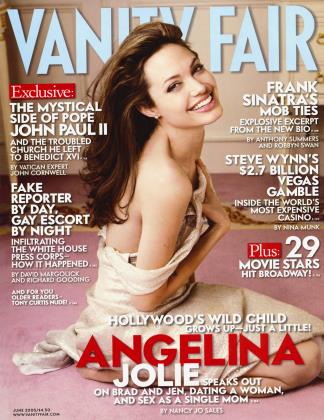Sign In to Your Account
Subscribers have complete access to the archive.
Sign In Not a Subscriber?Join NowDelusions of Grandeur
JON ROBIN BAIT'S NEW PLAY, THE PARIS LETTER
Precise use of language, a highly developed moral compass, and the will to challenge convention are estimable qualities in any playwright; in the hands of Jon Robin Baitz they can be deadly. In The Paris Letter. his latest Off Broadway production, the author turns an unsparing eye on the consistently troublesome issues of money. sex. and power. It concerns two men, lovers in their youth, who follow different paths: Sandy, a Wall Street money manager, uses his wealth and position to deny his sexuality and ultimately pays a high price for his need to be considered normal; the other—Anton—is, as Baitz says, an old-style queen, "flamboyantly rebellious and anarchistic, living within and outside the culture as a part of a secret priesthood." No prizes for guessing where the writer's sympathies lie. "It's a shame to lose the thing that makes you different—the thing that leaves you outside the norm," he continues. But the play is not merely a tale of homosexual politics (though he does believe same-sex marriage "flattens out the great romance and tragedy and complexity of what it means to be gay") —it is a metaphor for larger themes: delusionary behavior concerning sex and money in general. For Baitz, the danger in trying to lead a conventional life sexually, politically. or intellectually is "the death of the individuat and the death of the variegated things that make the culture different." As illustrated by Sandy, who uses wealth to cloak his nature, money is the operating ingredient for muting the bizarre and leads to "super-homogeneity," Baitz says, "like a bath where the inside and outside temperatures are exactly the same."
EDWARD HELMORE
FOR DATAILS, SEE CREDITS PAGE
 View Full Issue
View Full Issue


















Subscribers have complete access to the archive.
Sign In Not a Subscriber?Join Now